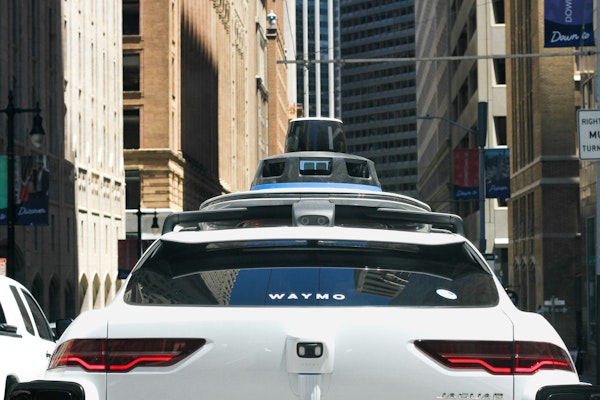
Global Risk Crisis Intensifies as Economic, Climate, and Cyber Threats Intersect
Economic uncertainty, climate change, and cybersecurity threats are compounding risk exposure across industries, creating a fast-evolving and interdependent crisis for insurers.
September 17, 2025
Catastrophe
Insurance Industry
Risk Management
Technology

North Korea Uses AI Deepfakes and ChatGPT in Targeted Cyberattacks on South Korea
North Korea-linked hackers are using AI tools like ChatGPT and deepfake ID images to impersonate South Korean military officials and carry out stealthy cyber intrusions.
September 15, 2025
Insurance Industry
Legislation & Regulation
Risk Management
Technology

Google Sued Over AI Summaries Using Content from Rolling Stone, Billboard, and Variety
The publisher behind Rolling Stone, Billboard, and Variety sues Google for allegedly republishing its content in AI Overviews, threatening journalism and digital media revenue.
September 15, 2025
Insurance Industry
Litigation
Risk Management
Technology

Insurance Underwriters Prepare for AI-Driven Transformation in Risk Management
A survey of 430 underwriting executives reveals AI adoption will surge from 14% to 70% in three years, reshaping efficiency, risk assessment and workforce strategy.
September 12, 2025
Insurance Industry
Risk Management
Technology
Underwriting

FTC Launches Inquiry into How AI Chatbots Affect Children’s Safety and Well-Being
The FTC is examining how AI chatbots may impact children, seeking answers from tech giants on safety measures, content monitoring, and potential risks to minors.
September 12, 2025
Legislation & Regulation
Life & Health
Risk Management
Technology

NOAA Launches First Hourly Wildfire Risk Model to Improve Forecasting and Response
NOAA’s new Hourly Wildfire Potential Index offers hourly wildfire hazard forecasts, helping responders and forecasters better track fire activity and smoke emissions in real time.
September 2, 2025
Catastrophe
Property
Risk Management
Technology

How Warehouse Technology is Reshaping Risk Models in Insurance
Connected automation in warehouses is forcing insurers to replace outdated models with dynamic, real-time risk assessments based on sensor data and machine performance.
September 2, 2025
Property
Risk Management
Technology
Underwriting

US Cyber Insurance Premiums Decline for the First Time Since 2018
US cyber insurance premiums fell 2.3% in 2024, signaling a market shift as carriers focus on underwriting discipline and sustainable growth amid evolving cyber risks.
August 29, 2025
Insurance Industry
Risk Management
Technology
Underwriting

Vibe Coding Is Transforming How Insurers Build with AI and Natural Language
Vibe coding lets insurance professionals build AI-powered tools using natural language, accelerating innovation while reshaping roles across the enterprise.
August 29, 2025
Education & Training
Insurance Industry
Technology

How Vertical AI Agents Are Transforming Insurance Claims Workflows
Vertical AI agents are revolutionizing complex insurance workflows like LTC adjudication and auto claims by using orchestrator-worker patterns, knowledge graphs, and real-time data.
August 29, 2025
Auto
Life & Health
Risk Management
Technology

Anthropic Blocks Hacker Attempts to Exploit Claude AI for Cybercrime
Anthropic has detected and blocked hacker attempts to exploit its Claude AI for cybercrime, including phishing, malware creation, and influence campaigns, the company reported.
August 28, 2025
Insurance Industry
Legislation & Regulation
Risk Management
Technology

How Insurtech Is Transforming the Homeowners Insurance Business Model
Homeowners insurance has long struggled with profitability, but new insurtech solutions like LeakBot and Ting aim to cut claims costs through proactive loss prevention.
August 28, 2025
Insurance Industry
Property
Risk Management
Technology

How Large Language Models Are Transforming Catastrophe Risk Modeling
Large language models are reshaping catastrophe modeling by integrating real-time unstructured data, enabling insurers to shift from reactive assessment to proactive mitigation.
August 26, 2025
Catastrophe
Property
Risk Management
Technology
California

Key Loss Adjusting Trends Shaping Property Claims in 2025
Sedgwick’s 2025 Loss Adjusting Insights Report explores the top nine trends—from tariffs and tech to legislation and climate change—reshaping property claims today.
August 25, 2025
Catastrophe
Legislation & Regulation
Property
Technology
California
Florida
Hawaii
Illinois
Iowa

Waymo Begins Autonomous Vehicle Testing on New York City Streets
Waymo has received New York City’s first permit to test autonomous vehicles with human drivers on board, marking a key step in expanding self-driving operations.
August 25, 2025
Auto
Insurance Industry
Legislation & Regulation
Technology
New York





